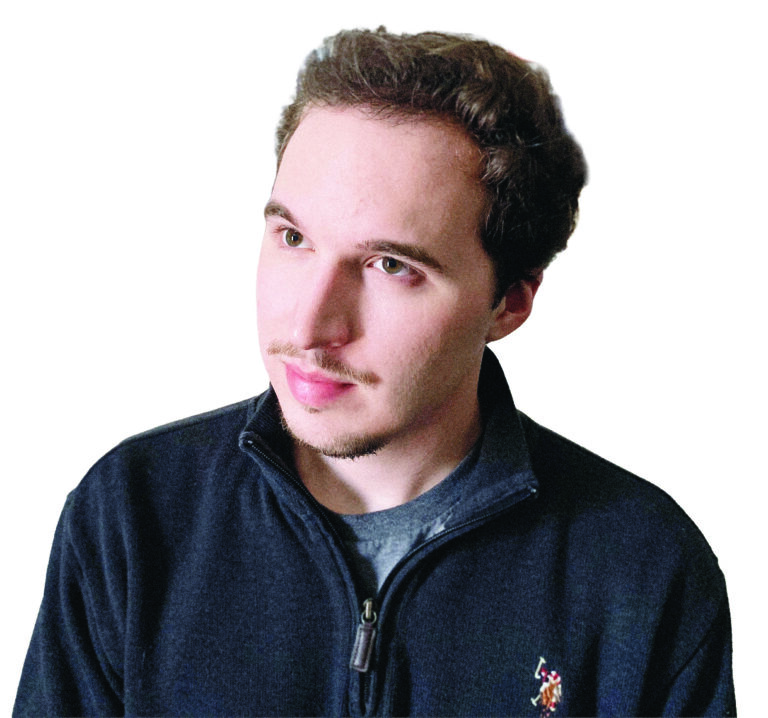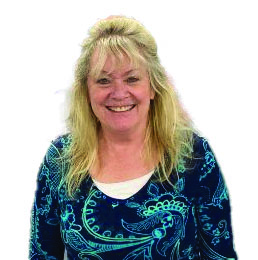American Insights – Dakoda Pettigrew: Words worth remembering: Truman and the land of hope

It was the day after Easter Sunday, and President Harry Truman entered the Rose Garden at the White House on Monday, April 14, 1952, to welcome the last group of refugees admitted under the provisions of the Displaced Persons Act of 1948, which he had supported and signed into law.
Waiting for him in the Rose Garden that afternoon was the Zylka family — Josef, his wife Ursula, and their two daughters. Following the Nazi invasion of Poland in September 1939, Josef was captured and enslaved in a labor camp. The war had nearly broken both his own life and the lives of his family, yet they endured and survived.
They fled westward, leaving behind a nation, a home, and a life shattered by the violence of war.
Stateside, Truman fought and fought for displaced persons legislation to help remedy what he called “a human problem, a world tragedy.” Writing to a difficult, reluctant, and at times passive Congress on several occasions, Truman urged the body “to pass suitable legislation at once so that this Nation may do its share in caring for homeless and suffering refugees of all faiths,” believing, wholeheartedly, “that the admission of these persons will add to the strength and energy of the Nation.”
To Truman’s chagrin, Congress provided legislation that was riddled with discrimination — “in callous fashion,” he said — particularly against Jews and Catholics.
“I know what a bitter disappointment this bill is,” Truman said in June 1948 — “to the many displaced victims of persecution who looked to the United States for hope; to the millions of our citizens who wanted to help them in the finest American spirit; to the many Members of the Congress who fought hard but unsuccessfully for a decent displaced persons bill.
“I hope that this bitter disappointment will not turn to despair.”
Despite its many shortcomings, Truman signed the bill into law, convinced that it aligned perfectly with the soul of the American political tradition.
In the Rose Garden several years later, Truman reached out his hand to the three-year-old Beate Zylka, the youngest daughter of Josef and Ursula, whose shyness as she approached the president put a wholesome grin on the Missourian’s face.
“It gives me much pleasure indeed to welcome you to this country of ours,” Truman told the Zylka family in brief remarks from the presidential podium, “and I hope you will get as much pleasure out of your citizenship in this country as I have had in helping you get here.”
Truman then reminded all who listened that the occasion reflected the American spirit.
“This country of ours is a magnificently great country, and it was made up in the beginning of people who were displaced in their own countries,” he said. “There isn’t a colony in the country that was not made up of people who were fleeing from persecution and hunting a better life.
“We have come to the point now, though, where some of the descendants of those early immigrants have come to the conclusion that they shouldn’t help other people who are now in the same condition that they were at that time, I am not one of them, although my roots go back as far as any of the people who claim ancestry in this country. I am not an ancestor hunter, I am a man who believes in doing things today that will make the world a better place to live in.”
It was, in the grand sense of time and place, a very forgettable moment in the Rose Garden. But still it endures because it displayed, not just to the Zylka family and those present, but to the entire world then and now that the real America is committed to living the words (and heart) of Jesus in Matthew’s Gospel: “Take My yoke upon you and learn from Me, for I am gentle and lowly in heart, and you will find rest for your souls.”
The soul of America may at times be stained with the dark colors of various isms — racism, nativism, isolationism. But what matters is not the color of the stain but the spirit of the stained. What covers good can be washed clean, revealing truth and purpose once hidden by selfishness and harshness.
Joseph Warren and indeed the entire founding generation understood that America was more than an experiment for Americans: it was, as Thomas Paine wrote, a chance to begin the world anew.
“May we ever be a people favored of God,” Warren shouted in March 1772. “May our land be a land of liberty, the seat of virtue, the asylum of the oppressed, a name and praise in the whole earth, until the last shock of time shall bury the empires of the world in one common undistinguished ruin.”
The way to live out the “may we ever” is to be like Harry Truman in the Rose Garden in April 1952—to show an open hand rather than a clenched fist, to offer hope instead of fear, and to extend freedom rather than restrict it.
Dakoda Pettigrew is a summa cum laude graduate of Liberty University with a Bachelor’s of science in political science and history. Pettigrew’s father went to school in Cassville, and he lives in Tennessee. He can be reached at [email protected].




